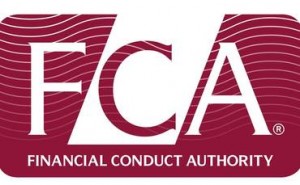
Forex Magnates' reporters have confirmed with a spokesperson at the UK's Financial Conduct Authority (FCA) with regards to certain details of the thematic review of best execution that is taking place across some 40 of its member firms, following recent developments.
Best execution standards help to ensure clients receive fair dealing and such standards not only vary from one market to the next, but also across instruments and asset classes, such as foreign exchange.
A spokesperson from the FCA told Forex Magnates that while they were unable to provide further details with regards to the thematic review, they did indicate that the FCA was narrowing in on best execution as part of this review of at least 40 firms, and had recently mentioned about the review in their newsletter.
The review is across a number of markets and instruments, as some FCA regulated members transact on regulated exchanges such as the FTSE where best execution would be very different from say an OTC FX broker trading off-exchange.
FCA Sampling 40 Member Firms for Best Execution Related
The thematic review is already in progress and due for report later this year, with no date yet announced, however, Forex Magnates' research team got their hands on a copy of a thematic review presentation that had been provided by the FCA to one of the 40 firms under review, from people close to the developments.
The number 40 appears to have been arrived at as a means to sample a population of the FCA's entire membership - a common approach used by regulators during audits and reviews- as sampling data can be just as effective in determining trends - rather than painstakingly going over every piece of data bit by bit.
The document we reviewed said that the FCA would first request certain data from firms (giving them a month to provide the information), then after reviewing it, would visit a number of offices during the months of December and January and then aim to publish their findings by the end of Q1.
Getting Paid for Order Flow or Paying for Order Flow
The above mentioned FCA presentation included reviewing the payment for order flow or introducer fees which was described as being reviewed alongside best execution as part of the analysis.
With commission rates fast approaching zero, just as the race to beat the clock is approaching zero seconds in terms of latency and speed of execution, so too have fees competed fiercely down to almost zero, with some venues actually paying clients to trade, or offering rebates for traders who add Liquidity (and charging for those who take it - although the opposite of these two can also occur).
These topics, including the payment for order flow, also known as rebates, have been an area of focus by the International Organization of Securities Commissions (IOSCO) which completed research in December in response to a request by the G20.
The IOSCO review of pricing models included how different dealing models such as symmetrical and asymmetrical market maker structures (although these words were used in a different context- not related to slippage) were analyzed in relation to how rebates and best execution affected market participants and to what degree – if any.
While the report had mixed views and conclusions based on its findings, due to the varying market-making and dealing models, including rebates/fees offered by various exchanges around the world, the area of best execution and paying for order flow (rebates) have become an important focus for both regulators and participants.
Best Execution for Forex as Asymmetrical Slippage Comes under Radar
The news comes on the heels of the action that the agency announced against the UK arm of FXCM, which was the first broker to be fined by the FCA for asymmetric slippage, and settled at an early stage of the investigation to qualify for a reduced fine of nearly $17 million, and in order to help refund clients who had been affected.
Asymmetrical slippage is only one (negative) component of best execution, which can include other standards applicable across different markets and regulatory jurisdictions.
For example in the US, in the exchange traded equities markets, clients' orders must be filled at the National Best Bid /Best Offer (NBBO) under best execution regulations, although the methods for achieving this are highly complex, especially as dark pools and venues that trade off tape have come to light, or when firms may have a tiny window for a last look at an order before deciding on whether to internalize it or not.
Ideally, slippage if and when it occurs should be symmetrical so that it can be either favorable or unfavorable to either party for transaction, and therefore not be biased towards either party, while at the same time getting clients in at the best price (i.e. symmetrical slippage not at the expense of best execution).
Typically, slippage can happen for a number of reasons such as a fast market, high volatility, or a large number of rate changes (ticks) happening in a small amount of time -even if the price is not moving much (i.e. could be a large number of trades taking place around the same price level - and thus causing the rates to update more frequently).
Will Best Execution Become Standardized for FX Dealers?
Especially in light of ongoing investigations into foreign exchange market rate manipulation as part of the 4pm fixing related investigations, Forex best execution standards could change - across a number of jurisdictions.
Added to the timing of this consideration are the efforts such as those put forward by IOSCO, including setting global benchmarking standards, which could help facilitate a more globalized approach for the biggest decentralized marketplace -where no official standard best execution rule exists (on a global scale).
Therefore, the rate logic that firms program into their execution systems, including the number of ticks to filter and other parameters that are normally configurable, will all have an effect on the quality of the execution, including if positive/negative slippage is allowed and whether it is unbiased (e.g. symmetrical).
Asymmetrical slippage has also been the basis for a case by the NFA against FXDD in 2012, which included a fine handed down to the firm, just as FXCM had to make good to its affected clients, in light of the findings by the FCA.
Forex Magnates opines how such asymmetrical slippage could be more widespread for unregulated brokers not under any best execution mandates, whereas regulated brokers scrutinized for their execution would have since had to take measures to help ensure proper execution logic is incorporated to keep it compliant - moving forward.
For example, commenting on the FCA related case against it, FXCM UK's CEO, Brendan Callan, said in the press release his firm issued after the settlement was announced, “This settlement is a significant step in our efforts to put this legacy trade execution issue behind us,” and concluded, “We are also pleased with the FCA’s 12 Feb, 2014 MarketWatch Newsletter article on trade execution standards and we hope that it helps improve execution practices across the industry."
Thus, more FCA regulated firms could be the subject of best execution related findings by the FCA, and/or other regulatory jurisdictions may carry out similar reviews -provided that such obligations exist that would require compliance by their members to help ensure fair dealing.

























